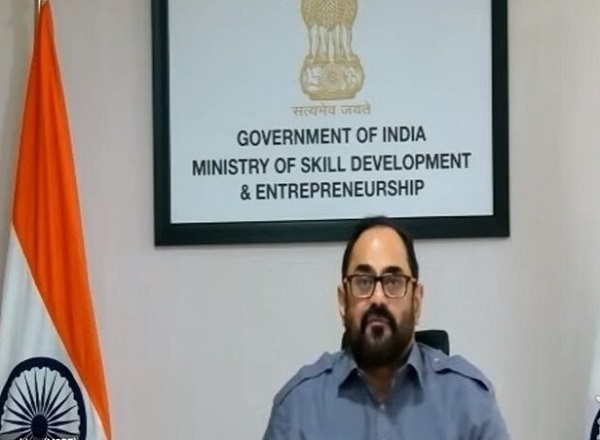New Delhi, (Samajweekly) Union Minister of State for Electronics and IT, Rajeev Chandrasekhar, on Tuesday said that the European Union (EU) is following the India model of a safe Internet by making social media intermediaries accountable towards its citizens’ data.
The minister was reacting to the new EU directive to tame Alphabet (Google’s parent company), Meta (formerly Facebook), Microsoft, Twitter and others under the new EU online content rules.
“EU also following Indian model of ensuring a safe and trusted Internet by making social media intermediaries more accountable,” Chandrasekhar said in a tweet.
The EU Digital Services Act (DSA) wants the social media platforms to maintain independent auditing and share data with relevant authorities, along with adopting a code of conduct by August this year.
Meanwhile, the UK government on Tuesday introduced a new legislation to tame Big Tech from abusing market power and ensure businesses and consumers are protected from rip-offs and can reap the full benefits of the digital economy with confidence.
Fake reviews that cheat customers, subscription traps that cost more than a billion pounds a year, and new powers for the Competition and Markets Authority (CMA) to tackle businesses that breach consumer rights law are all elements of the far-reaching bill.
India is at the forefront of taming social media intermediaries with the proposed Digital India Act (DIA) that will give a much-needed thrust to the current regulatory landscape in India to tame Big Tech and empower millions of citizens.
The country needs Global Standard Cyber Laws to act as a catalyst and enabler for the $1 trillion digital economy, according to Chandrasekhar.
The proliferation of hate speech, disinformation and fake news are concerns that the old IT regime cannot address.
Hence, there is an urgent need for DIA rules in India which will “manage the complexities of the Internet and rapid expansion of the types of intermediaries”.
“The new digital law should be evolvable and consistent with changing market trends, disruption in technologies, development in international jurisprudence and global standards for qualitative service/products delivery framework,” Chandrasekhar mentioned recently.
The proposed DIA will offer adjudicatory and appellate mechanisms for accountable and responsive digital operators; updated intermediary framework; obligations on significant digital operators through classification/ mandates; algorithmic transparency and periodic risk assessments by digital entities.
The aim is to fulfill Prime Minister Narendra Modi’s ‘Digital India Goals 2026’ and create a $1 trillion digital economy by 2025-26.
“India will be a significant trusted player in the global value chains for digital products, devices, platforms and solutions,” said Chandrasekhar.









